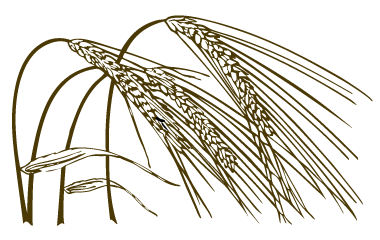Indigenous Resilience, Resistance, and Just Transition for the Food System
September 8, 2020
Presenters
- Walter Ritte, ‘Āina Momona, Executive Director
- Jane Au, ‘Āina Momona, Program Director
- Brenda Jo (BJ) McManama, Indigenous Environmental Network, Campaign Organizer
- A-dae Romero-Briones, First Nations Development Institute, Director of Programs: Native Agriculture and Food Systems
Materials
Resources shared on the call
Indigenous Environmental Network Links:
- Just Transition
- Regenerative Economy
- Carbon Pricing: A Critical Perspective for Community Resistance
- Green New Deal
- United Frontline Table article
- Check out this vital political education session from earlier this month with our United Frontline Table, led by Indigenous Environmental Network on Indigenous Sovereignty.
- This call came from the collective work of the United Frontline Table; the Indigenous Sovereignty plank is the first plank in the toolkit: A People’s Orientation to a Regenerative Economy.
Please cite organizational sources and credit materials to the specific presenters when sharing within your organization to respect and honor this hard work.
Materials
Downloadable resources shared by presenters
ʻĀina Momona fish pond brochure · The fishpond brochure describes the current program activities and mission of ʻĀina Momona, a Native Hawaiian nonprofit “dedicated to achieving environmental health and sustainability through restoring social justice and de-occupying Hawaiian lands.”
ʻĀina Momona 2018-2019 updates · This report describes the innovative programs of ʻĀina Momona including a fellowship program for emerging young professionals on Moloka‘i, which offers hands on training opportunities to work on current community issues.
“Recognition and Support of Indigenous California Land Stewards, Practitioners of Kincentric Ecology.” · This is a paper written by A-dae Romero-Briones, Dr. Enrique Salmon, and Hillary Renick and Temra Costa and co-published by First Nations Development Institute and California Foodshed Funders. Rather than “attempt to fit Indigenous land stewardship
and food systems into a Western framework” this paper deepens our understanding of indigenous food production and land steward practices, cultural mores, and knowledge from a California Native perspective.
“We Are Still Here. John Muir Is Not” by Rebecca Tortes, Jennifer Malone, Leah Mata Fragua, Hillary Renick, A-dae Briones, and Fred Briones. In this Orion op-ed, indigenous authors respond to Sierra Club’s recent article, “Liberal, Progressive–racist? The Sierra Club faces it’s white supremacist history. They argue that placing emphasis on John Muir as “an individual detracts from the real work needed — to challenge established racist ideologies embedded in our largest and most influential institutions.” They call on us to ask new questions…. “Instead of asking how John Muir was racist, perhaps the better question is how the scientific thought that justified those racist behaviors is still actively at the center of the environmental movement? There is little that can be done to reform John Muir at this point, but there is plenty that can be done to rectify present processes and influences.”
Indigenous Environmental Network’s Just Transition Handout · “As Just Transition is becoming popular with different theories, practices and approaches, the Indigenous Environmental Network felt the need to compile a set of Indigenous-based principles of what Just Transition means to Indigenous peoples in North America-Turtle Island. A process was created to remember the contributions of the many tribal voices of Indigenous Peoples that came to the Protecting Mother Earth Conferences that started in 1990 and continued to 2010.” This document is a result of this process and offers a set of principles and framework of an indigenous just transition.
“Genetically Engineered American Chestnut Tree Called ‘Trojan Horse’ Aimed at Opening Door to Commercialize GE Trees” · This article describes current efforts to gain USDA approval for the first GE forest. “It would also be the first GMO approved for release in the wild with the intention of spreading pollen to contaminate wild relatives with the engineered trait. If approved, the unregulated GE American chestnut would eventually replace the wild American chestnut, which would no longer exist in the forests.”
